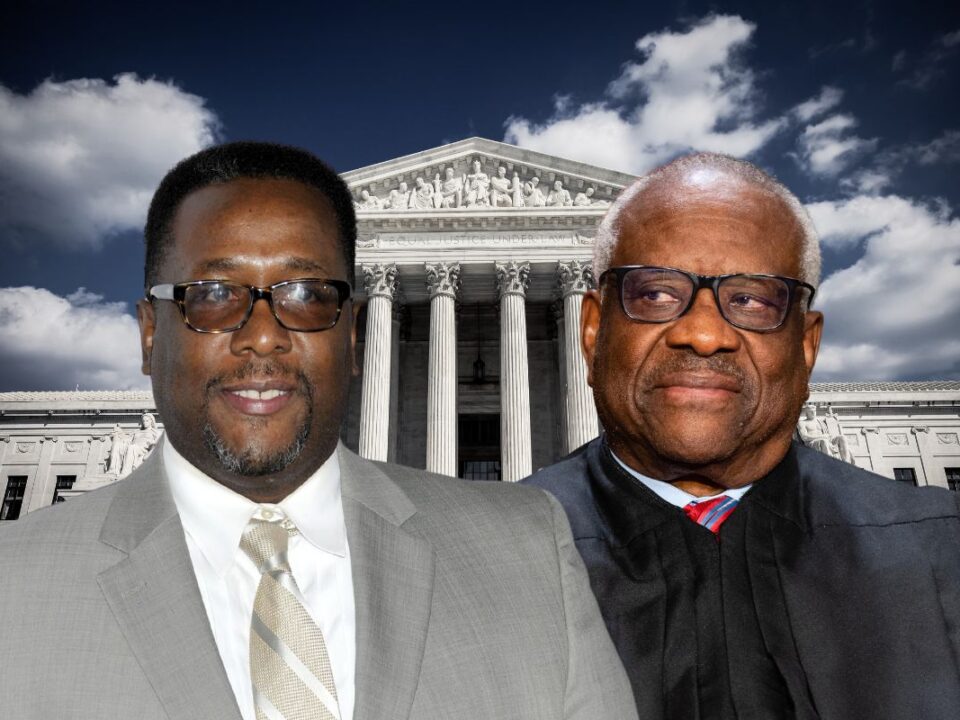Actor Wendell Pierce, known for his roles in “The Wire” and “Jack Ryan,” offered a detailed perspective on Supreme Court Justice Clarence Thomas and his stance on affirmative action.
Pierce, who portrayed Thomas in the HBO film “Confirmation,” provided a unique insight into the Justice’s controversial views.
Pierce explained that he and Thomas share similar backgrounds during an interview with AllHipHop.com.
“Black from the south, Grandparents were farmers, poor, understood the value of Education the premium value of Education your first wealth in life is education, Catholic black Catholic from the south,” he said during an interview with Chuck “Jigsaw” Creekmur.
However, their paths diverged when it came to affirmative action. Pierce benefited from it, while Thomas, despite benefiting from it early in his career, later became one of its most vocal critics.
According to Pierce, Thomas’s opposition to affirmative action stemmed from a traumatic experience. After graduating from Yale Law School, Thomas was unable to secure a job at a law firm in his hometown of Savannah, Georgia.
This rejection, Pierce suggests, led Thomas to believe that his degree was devalued because it was obtained through affirmative action.
Pierce explained, “he had no problem with it until he returns home to Savannah, Georgia, and he wants to join one of the established law firms there, and here he is with his Yale degree from the community, smart as can be, and they wouldn’t accept him. He could not get hired at a law firm in Savannah, Georgia.”
In a recent Supreme Court ruling, Thomas’s long-held dream came true. The court declared the use of race in admissions policies, a key component of affirmative action, as unconstitutional.
In his concurring opinion, Thomas wrote, “All forms of discrimination based on race—including so-called affirmative action—are prohibited under the Constitution.”
Pierce, however, believes in the power of art and entertainment to challenge such views. He encourages young people not to squander their power and to continue the fight for their rights, a battle that must be won with each generation.
He reminds them that the challenges they face today are nothing compared to what their ancestors endured, and that they have more power now than ever before.
He stated, “with every generation, you have to fight and win the battle for your rights.”
